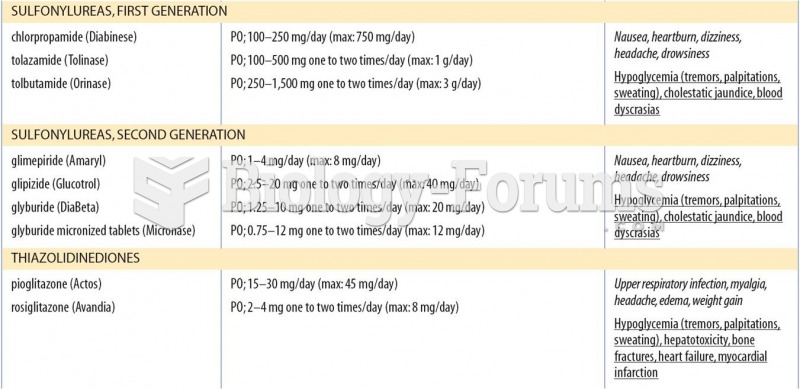|
|
|
There are major differences in the metabolism of morphine and the illegal drug heroin. Morphine mostly produces its CNS effects through m-receptors, and at k- and d-receptors. Heroin has a slight affinity for opiate receptors. Most of its actions are due to metabolism to active metabolites (6-acetylmorphine, morphine, and morphine-6-glucuronide).
Excessive alcohol use costs the country approximately $235 billion every year.
Medication errors are three times higher among children and infants than with adults.
Limit intake of red meat and dairy products made with whole milk. Choose skim milk, low-fat or fat-free dairy products. Limit fried food. Use healthy oils when cooking.
Drugs are in development that may cure asthma and hay fever once and for all. They target leukotrienes, which are known to cause tightening of the air passages in the lungs and increase mucus productions in nasal passages.
 An oral contraceptive showing the daily doses and the different formulation taken in the last 7 days
An oral contraceptive showing the daily doses and the different formulation taken in the last 7 days
 A planar design zirconia oxygen sensor places all of the elements together, which allows the sensor ...
A planar design zirconia oxygen sensor places all of the elements together, which allows the sensor ...





